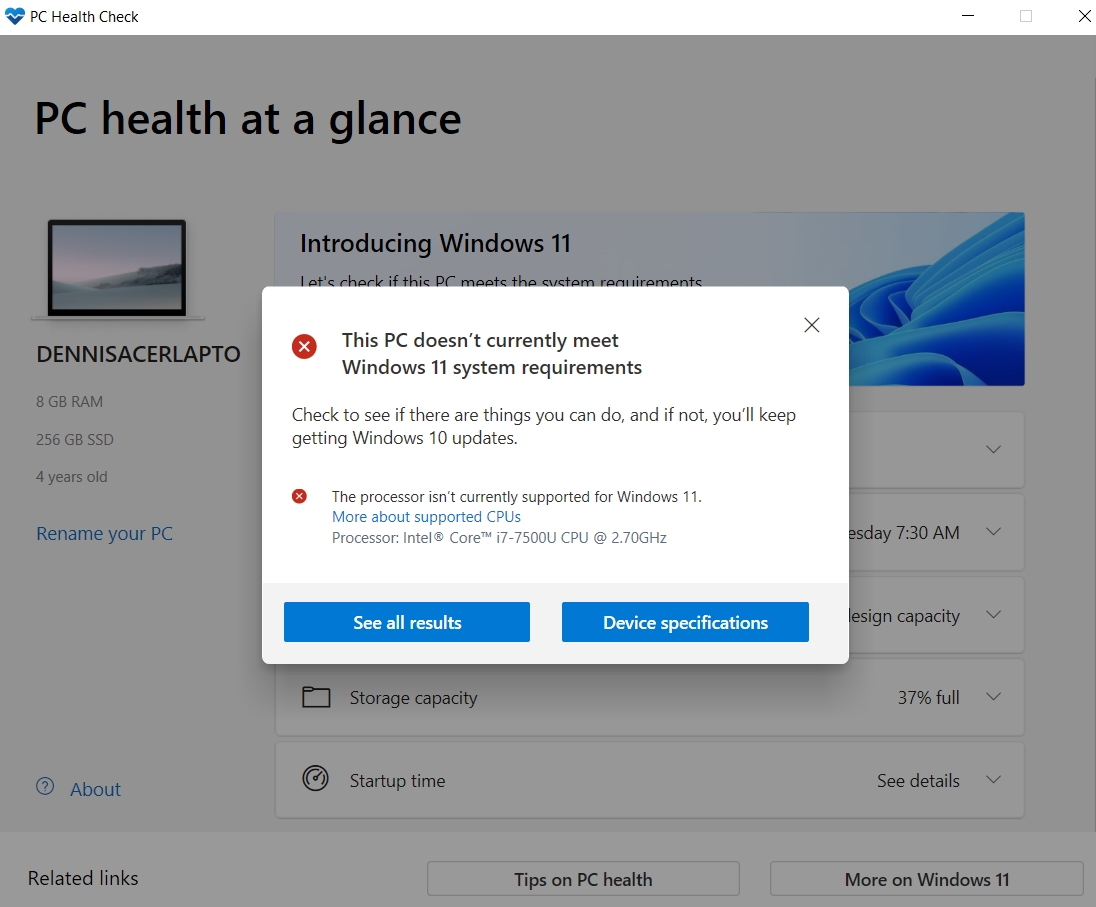
You are looking at the wrong (Windows 10) list. This is the correct list.
Alon.
This browser is no longer supported.
Upgrade to Microsoft Edge to take advantage of the latest features, security updates, and technical support.
I ran the PC Health check, and it states that my CPU isn't supported for Windows 11. I have an Intel Core i7-7500U @ 2.7GHz CPU. When I check the supported list here (https://learn.microsoft.com/en-us/windows-hardware/design/minimum/supported/windows-10-21h2-supported-intel-processors), my CPU shows as being in the list. How do I fix this?


You are looking at the wrong (Windows 10) list. This is the correct list.
Alon.
Well that sucks. I WAS looking in the wrong list. Nonetheless, it does seem like my CPU is advanced enough in all other respects? Did it just not get tested? Do you suppose it is safe to upgrade to Windows 11 anyway?
Thank you for the help!

No, the CPU and related hardware are missing essential security features required by Windows 11. Therefore, if you force updating to Windows 11, you will not get support and probably no Windows Updates.
Alon.
Please post images or share links for the Windows 11 compatibility check: (displaying all parameters)
https://www.microsoft.com/en-us/windows/get-windows-11
There are two methods to install Windows 11:
a) upgrade
b) clean install
The installations can be performed in either a supported or unsupported fashion.
The Windows update agent will check for supported and unsupported parameters.
If it detects unsupported parameters the upgrade will fail.
The registry and files can be modified so that the Windows upgrade agent does not detect the unsupported parameters.
There is no check for supported or unsupported parameters when performing a clean install.
Most computers can clean install Windows 11.
This includes desktops, laptops, and tablets.
Each end user must weigh the risks and benefits in deciding whether to continue using Windows 10, upgrading to Windows 11, or clean installing Windows 11.
There are multiple websites reporting the successful installation of Windows 11 on computers with unsupported parameters.
These are some Microsoft links:
.
.
.
.
.
Please remember to vote and to mark the replies as answers if they help.
On the bottom of each post there is:
Propose as answer = answered the question
On the left side of each post there is /\ with a number: click = a helpful post
.
.
.
.
.

As I said, you CAN install Windows 11 on an unsupported machine. You can even run a Windows 11 VM on top of Windows 10 with unsupported Windows 11 hardware. The main problem is that you risk stability, security, and serviceability. If you don't care about these quality attributes, then try to install Windows 11.
Alon.